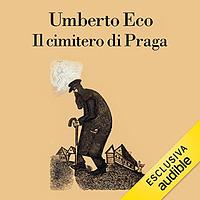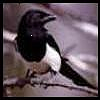Take a photo of a barcode or cover
I practically had to dig my way through this. With my bare hands. BARE HANDS. The alternative universe me with manicured nails and perfect nail polish would have had her nails utterly destroyed if she had to do what I did in order to finish this. FORTUNATELY I am not her. But it still cost me A LOT to finish this. Oh Umberto Eco, why so soul-less this time?
1,5 stars. Can't give it any more than that.
1,5 stars. Can't give it any more than that.
This is the first book by Umberto Eco i ever read and i enjoyed it. It was a story of a deranged anti-semitic, sexist, racist but too cunning and intelligent of a man whose hatred for a race, the Jewish people particularly derives him to contribute to the creation of the infamous hoax, the Protocols of the Elders of Zion. I like how terrible the protagonist is. His mind and everything that he said regarding others are really repulsive. This novel successfully showed me how repulsive is hatred.
To sum it up, I believe if this book is written by less skilled writer it would be an awful book but Umberto Eco handled everything well.I recommended it.
To sum it up, I believe if this book is written by less skilled writer it would be an awful book but Umberto Eco handled everything well.I recommended it.
http://bw.tumblr.com/post/16152233430/prague-cemetery
I finished the new Umberto Eco novel today, Prague Cemetery. I described it in about 47 different ways to various people, trying to get at the core of what made me like it and feel distanced from it all at the same time.
It’s an odd book, like Eco’s fiction can be. His focus on history can lead to a pretty glacial narrative pace. That’s definitely the case here, it’s not a fast book, and not an easy one. Honestly, the fictional conceit throughout the entire thing “Is the protagonist two people or one person with split personalities?!” is pretty flimsy and once you realize just how much of the book is based in history (the only completely fictional character is Simioni) it’s obvious that his purpose isn’t so much to have some fictional hook as to nod to the real multiplicity contained within this one character. So after it’s all over you realize just how brilliant it is, even if while in progress you’re wondering why it’s even necessary. (And don’t worry I haven’t spoiled anything for you, this isn’t really a book you can spoil.)
That aside, it really is a wondrous thing. The prose is sharp, clear and at times profoundly uncomfortable, befitting a book about some of the most famous/infamous conspiracy theories published, more specifically the ones devoted to devil worship, Masonic cults and anti-semitism. It’s an attempt to condense the history of these conspiracies into one line, one trajectory, and it does so elegantly.
There’s a purity of purpose to Eco’s writing that I really like. When he writes fiction it’s incredibly focused, and an honest expression of his obsessions and historical interests. Sure, at times the fiction can drag, and the plot at times bows to the history, but Eco never manages to make it feel like a Neal Stephenson book can, where instead of attempting to integrate research and fiction you get these weird alternations between research and fiction. Eco marries them together seamlessly, even if he sacrifices some of the rip-roaring fiction rollercoaster-ness he could provide. He is a sober writer, writing about for the most part sober things and while I wouldn’t want to only read him, I’m always glad when I do. He expects a lot from the reader, it feels, and it’s always kind of nice to follow him on whatever winding path he takes you down, at whatever pace he chooses.
I finished the new Umberto Eco novel today, Prague Cemetery. I described it in about 47 different ways to various people, trying to get at the core of what made me like it and feel distanced from it all at the same time.
It’s an odd book, like Eco’s fiction can be. His focus on history can lead to a pretty glacial narrative pace. That’s definitely the case here, it’s not a fast book, and not an easy one. Honestly, the fictional conceit throughout the entire thing “Is the protagonist two people or one person with split personalities?!” is pretty flimsy and once you realize just how much of the book is based in history (the only completely fictional character is Simioni) it’s obvious that his purpose isn’t so much to have some fictional hook as to nod to the real multiplicity contained within this one character. So after it’s all over you realize just how brilliant it is, even if while in progress you’re wondering why it’s even necessary. (And don’t worry I haven’t spoiled anything for you, this isn’t really a book you can spoil.)
That aside, it really is a wondrous thing. The prose is sharp, clear and at times profoundly uncomfortable, befitting a book about some of the most famous/infamous conspiracy theories published, more specifically the ones devoted to devil worship, Masonic cults and anti-semitism. It’s an attempt to condense the history of these conspiracies into one line, one trajectory, and it does so elegantly.
There’s a purity of purpose to Eco’s writing that I really like. When he writes fiction it’s incredibly focused, and an honest expression of his obsessions and historical interests. Sure, at times the fiction can drag, and the plot at times bows to the history, but Eco never manages to make it feel like a Neal Stephenson book can, where instead of attempting to integrate research and fiction you get these weird alternations between research and fiction. Eco marries them together seamlessly, even if he sacrifices some of the rip-roaring fiction rollercoaster-ness he could provide. He is a sober writer, writing about for the most part sober things and while I wouldn’t want to only read him, I’m always glad when I do. He expects a lot from the reader, it feels, and it’s always kind of nice to follow him on whatever winding path he takes you down, at whatever pace he chooses.
I'm surprised, but I liked this book more than most critics. You have to treat it as a book of ideas, though, not so much as a story with characters. It has something to say about being careful with the idea that stories and legends are true even when not factually accurate. I believe that idea, but this book shows why and when to limit that belief. In fact, it even shows you how to do so.
The book is all about creating conspiracy theories of prejudice, mostly against Jews (but also Masons and Jesuits). It engages well with the idea of how to fight conspiracy theory prejudice, when saying "don't be prejudiced" doesn't work bc the conspiracist knows his interpretation of all the "facts" as to why it's true, not prejudice. And arguing in detail doesn't work, bc there's always a way to interpret the facts and select which facts to believe, which leads to the prejudiced conclusion. And you can't even create a work of fiction to preach against it, the movie American History X comes to mind, bc then the fictional character who believes the prejudiced conspiracy gets to explicate his theory in the script (or the pages of the book). The author may be trying to preach against the prejudice, but he just gave the ideas another day in the sun, for conspiracists to latch onto, since they do so regardless of what the author is trying to do -- that's the nature of the personality.
I believe Eco finds a way out and executes it well. Tell me if you read it and disagree.
The book is all about creating conspiracy theories of prejudice, mostly against Jews (but also Masons and Jesuits). It engages well with the idea of how to fight conspiracy theory prejudice, when saying "don't be prejudiced" doesn't work bc the conspiracist knows his interpretation of all the "facts" as to why it's true, not prejudice. And arguing in detail doesn't work, bc there's always a way to interpret the facts and select which facts to believe, which leads to the prejudiced conclusion. And you can't even create a work of fiction to preach against it, the movie American History X comes to mind, bc then the fictional character who believes the prejudiced conspiracy gets to explicate his theory in the script (or the pages of the book). The author may be trying to preach against the prejudice, but he just gave the ideas another day in the sun, for conspiracists to latch onto, since they do so regardless of what the author is trying to do -- that's the nature of the personality.
I believe Eco finds a way out and executes it well. Tell me if you read it and disagree.
The flawed main characters/unreliable narrators were so anti-semetic, to my reading.
I'm not sure what to think about Eco's latest novel. On the one hand, to create a new narrative from so many disparate historical events and keep the reader guessing as to what is fact and what is fiction is a real feat, but on the other hand, some of it was a bit heavy handed, and I just wasn't crazy about the subject matter. I can't help but wonder why he can't just give us another Name of the Rose...
I love Eco, but this was a hard book to actually enjoy. Rather than giving me twisty things to think about, which I remember feeling like other books of his have done, there was a lot of anti-Semitic paranoia sort of shoved into my head. Not Eco's, of course, but the characters, as the story is about crazy anti-Semitic conspirators. But it kept me from being as involved in the book as I would have liked, as I felt like I was just following a lot of plot rather than being able to really chew on something, either character-wise or idea-wise. Even the black mass was just sort of another crazy thing happening in the way I experienced it.
challenging
dark
informative
medium-paced
Strong character development:
Complicated
Loveable characters:
No
Diverse cast of characters:
No
Flaws of characters a main focus:
Complicated
Very much in Eco's style, which works for this book and against it. It feels like familiar territory after Foucault's pendulum albeit without a single likeable character.
I admit to being a biased audience. As a story, it was very cleverly constructed, but as an Eco novel, I expected something...more. It does what it set out to do and well and yet the cleverness felt like a rehash of some of his earlier work. Still ok Eco is miles above just about everyone else
I admit to being a biased audience. As a story, it was very cleverly constructed, but as an Eco novel, I expected something...more. It does what it set out to do and well and yet the cleverness felt like a rehash of some of his earlier work. Still ok Eco is miles above just about everyone else
I tried. I really tried. As much as I enjoyed The Name of the Rose I just couldn't get into this story.





